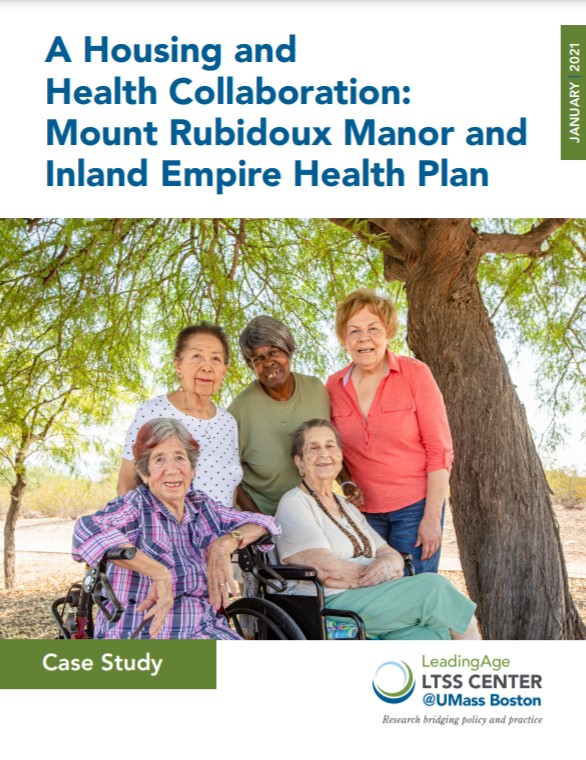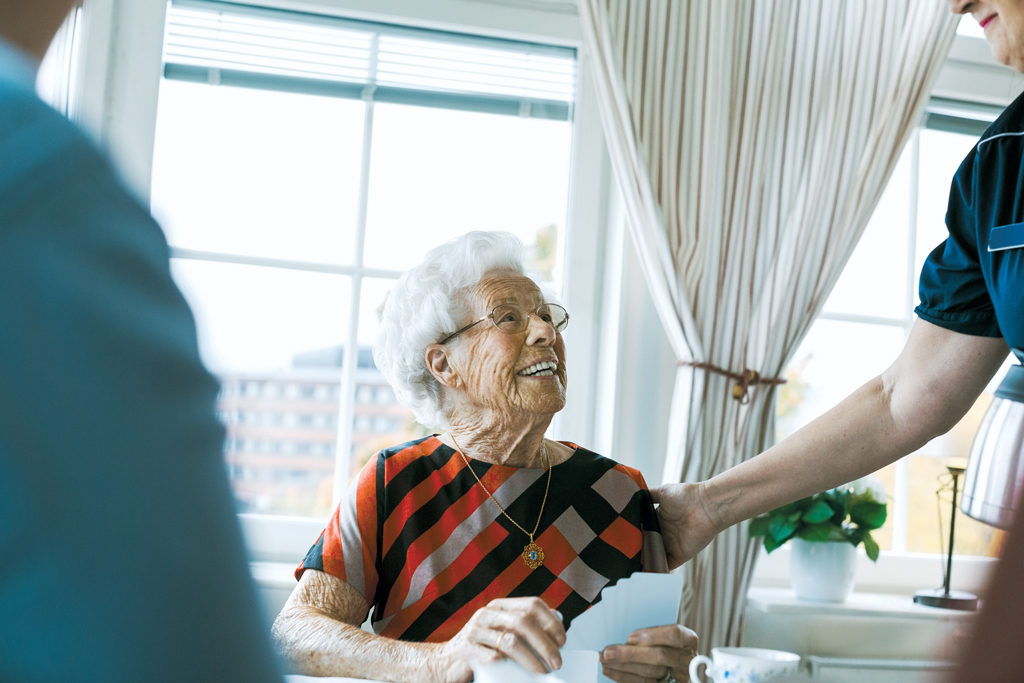
Affordable senior housing residents’ physical, mental and social health generally improve with the help of community health workers, according to a new case study from the LeadingAge LTSS Center @UMass Boston.
The report details a pilot program via which community health workers help residents of HumanGood-operated Mount Rubidoux Manor in Riverside, CA, understand and access health benefits and remove barriers to care. The collaboration launched in 2019 and provides an onsite health navigator three days per week to work one-on-one with residents. The workers are employed by the Inland Empire Health Plan, a nonprofit, Medicaid-supported health entity.
Robyn Stone, DrPh, LeadingAge senior vice president of research and co-director of the LTSS Center, said in a blog post that she is “intrigued” by the role of the community health workers in this model.
“Health workers who live in the same community and share the same background as older housing residents could expand and enhance the on-site team in so many ways,” Stone wrote. “They could converse with residents in their native language — a key to engaging older adults in their own health. [Community health workers] could also build trust and gain acceptance by presenting health information and service options in a culturally sensitive way.”
In the first 13 months of the pilot program, the health navigator completed 48 health appraisals with 48 residents. The navigator helped residents schedule medical appointments, referred residents to health education and behavioral health programs, and connected residents with community resources.
The appraisals revealed complex health issues and the need for consistent follow-up. The health navigator also works with the resident service coordinator at the housing complex to communicate with families about a loved one’s care.
IEHP also provides group programming and activities to give residents information and resources to improve their health, create social connections and address social isolation and depression. Topics have addressed healthy eating, weight management, diabetes classes, exercise, meditation and emotional wellness. Approximately 40% of residents have participated in a wide range of programming.
The partners are looking at new ways to improve care coordination and identify new elements to add to the program, including working with case managers, adding behavioral health specialists and tailoring programming.




